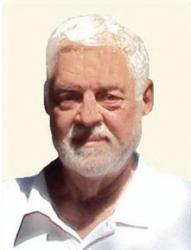On Monday, Oct. 30, Paul Manafort and his longtime business associate, Rick Gates, surrendered to the Justice Dept. after being indicted by a federal grand jury on 12 charges, including conspiracy against the U.S.
Manafort has long been known to be the focus of special counsel Robert Mueller’s investigation of Russian efforts to influence last year’s presidential election; early on the morning of July 26, FBI agents armed with a search warrant raided his home and seized documents and other records.
So who is Paul Manafort, and what is his association with the Trump campaign?
Corey Lewandowski was Trump’s campaign manager when he began his quest for the presidency. Lewandowski was brash and combative, and he created almost as much controversy as Trump himself, but his biggest shortcoming was a lack of experience running a political campaign.
Most of the early primaries were winner-take-all, meaning whoever gets the most votes gets all that state’s delegates, which greatly benefited Trump, who was running in a crowded field. When it came to Louisiana, Trump won the primary handily, but his campaign was surprised to learn he would not get all the delegates; some were proportioned over the top two vote getters in district caucuses, while others would be chosen at the state convention. Trump was furious, and threatened to sue Louisiana and other states that did not have winner-take-all primaries.
A few weeks later, the Trump campaign was surprised again when it discovered that not all persons who ran as Trump delegates were legally bound to vote for him. If some Trump delegates could be persuaded to switch and vote for a different candidate, it could result in a floor-fight at the convention that might open the door for a “dark horse” candidate. It’s happened before in U.S. political history.
It was at that point that the Trump campaign decided to bring in a political pro, someone who understood how the electoral process worked.
At the suggestion of his friend and longtime ally, Roger Stone, Trump asked Paul Manafort to help keep his delegates in line for the upcoming party convention. Manafort had the experience; he had managed convention fights for a number of Republican presidential nominees, including Gerald Ford in 1976, Ronald Reagan in 1980 and 1984, and George H. W. Bush in 1988. Manafort accepted the position, and offered to work for free.
But Manafort had another career. In 1980, he co-founded the Washington, D.C.-based lobbying firm Black, Manafort and Stone, which represented some disreputable international clients, including the Russian-backed president of Ukraine, Viktor Yanukovych.
Yanukovych was a Russian puppet who was ousted in 2014 during the “Euromaidan Revolution,” a popular uprising by Ukrainians seeking closer ties to Western Europe. This led Russia to annex the Crimea, and it led to the outbreak of a civil war against Russian-backed rebels. A ledger found after the revolution indicated that Manafort may have received nearly $13 million in off-the-record payments for assisting Yanukovych.
Once Manafort was on the Trump campaign, he reportedly butted heads with Lewandowski. In late June, Trump ousted Lewandowski and elevated Manafort to campaign chairman. It was a position he would hold for just two months.
Some traditional Republicans thought Manafort was a big improvement over the brash Lewandowski, and that he brought organization to the campaign, but he increasingly came under fire for his past lobbying work on behalf of pro-Russian Ukrainian oligarchs, and for suggestions that he may have removed a plank from the Republican platform that promised military aid to the Ukraine government.
In August, Trump announced a new leadership structure for his campaign that appeared to minimize Manafort’s role. Two days later, Manafort tendered his resignation, and Trump accepted it, saying “I am very appreciative for his great work in helping to get us where we are today, and in particular his work guiding us through the delegate and convention process. Paul is a true professional, and I wish him the greatest success.”
On Oct. 30 on Fox Business Network, Lewandowski asked: “If the public reports are true, and there was a time where Paul Manafort was under a [Foreign Intelligence Surveillance Act] warrant before coming to the Trump campaign, why is it the FBI never reached out to me as the campaign manager, never reached out to Donald Trump, and said: ‘Look, you might want to pause for a second and take a look before you bring this guy on board as a volunteer to hunt delegates to you?’ This is a problem with the FBI, if you ask me.”
It’s a fair question. Manafort’s lobbying activities were well known among Washington insiders, but Trump was running a bare-bones campaign staffed with political outsiders, and he relied on his friend and Manafort’s business partner Roger Stone’s recommendation rather than vetting Manafort.
Another fair question is: Why hasn’t more been done to investigate Bill and Hillary Clinton’s activities while she was the secretary of state?
But when Trump’s supporters demand that Robert Mueller resign, and the Justice Department drop its investigation of Manafort and Russia’s efforts to influence the election, and instead begin investigating the Clintons, it sounds like a diversionary tactic. Investigating the Manafort/Russia connection and investigating the Clintons are not mutually exclusive. The FBI and our intelligence services should be capable of doing both.
Perhaps the biggest political lesson from Watergate is that the cover-up can be worse than the crime. I have a hunch — and it is just a hunch — that Donald Trump was not involved with Russia, and did not have any knowledge of collusion with the Russians by people involved in his campaign. If that’s the case, he should welcome scrutiny of the activities of his campaign officials. He needs to avoid doing anything that can be construed as obstruction of justice.














Comments are closed.